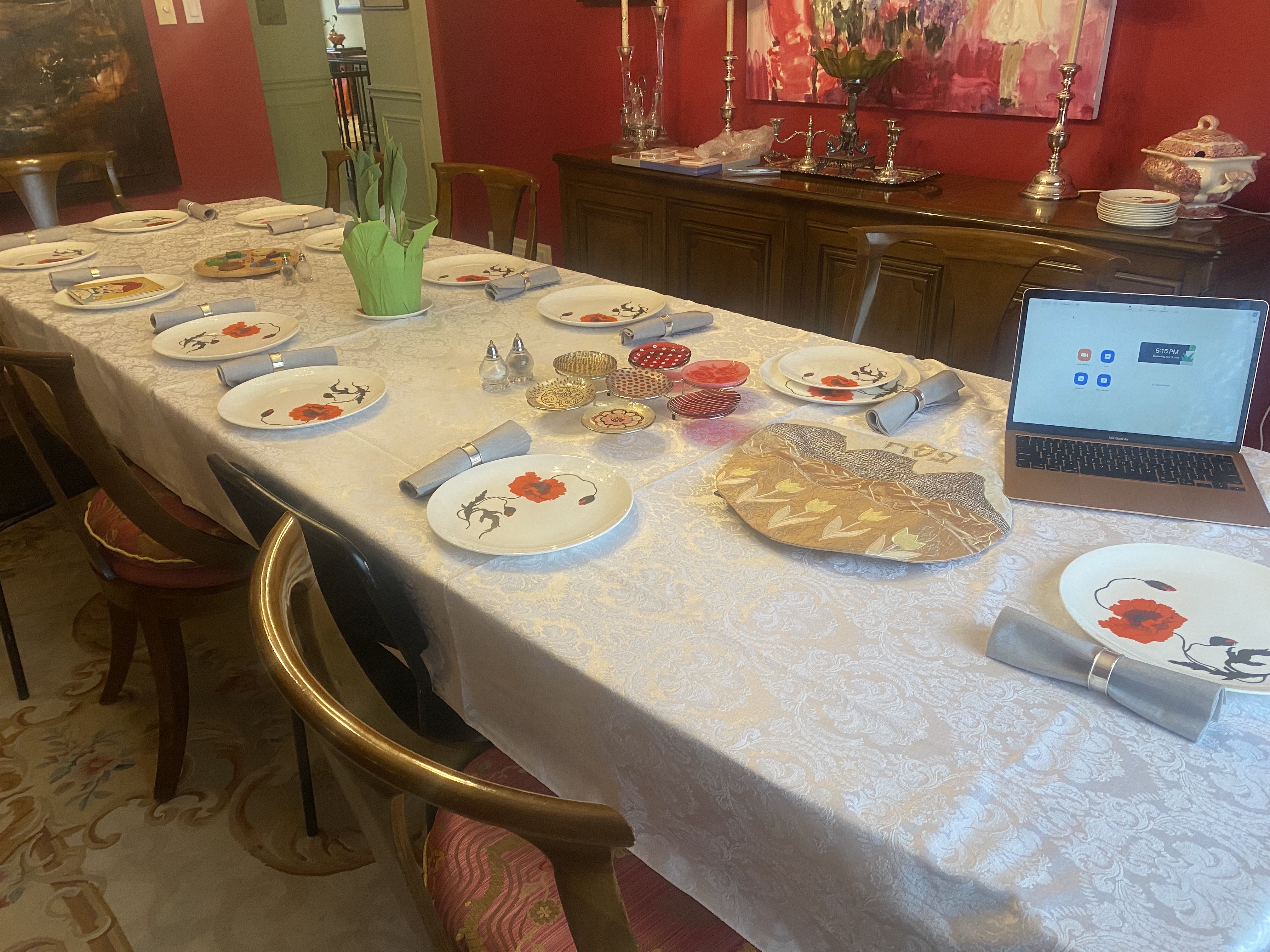With a late-spring snowstorm hammering Winnipeg and COVID cases rising sharply in other parts of the country, some families are facing a disrupted Passover for the third year in a row and deciding to scale back their seders, host online or cancel them altogether.
Unlike the last two years, there was hope that everyone would be able to celebrate normally this year, and so many people made plans operating under that assumption. With the recent uptick in cases, families and communities are debating about what to do.
Ontario is seeing about 100,000 cases of COVID a day, based on wastewater analysis, Dr. Peter Juni, head of the province’s science advisory table, said April 6.
Patricia Altman of Toronto said her family’s seders in the years before COVID had been around 30 or 40 people. This year, her eldest daughter was planning on hosting both nights, with just under 20 people. In the lead up to Passover, many of the guests had to drop out because they caught COVID or had health concerns. Then Altman’s daughter caught COVID and had to cancel the seders entirely.
On Tuesday, three days before the seder, Altman was waiting to see if her daughter and her family would be well enough to come to her instead. By Wednesday, it was clear that her daughter would not be well enough, and Altman was deciding if her grandchildren could still come for one of the nights. But at the moment, she said, it seems like it will just be Altman and her son for the seders.
“So essentially, we are still in a state of flux. We don’t know really what we’re going to do because we’ve been hit… and we were not expecting that. It sort of has us reeling because, our family has always loved Pesach,” Altman said.
“We did everything from scratch, it was a big family time, and now it feels really, really weird. It almost feels like we’re alone in this. I would say that this week was the first time it hit me the hardest emotionally in terms of not being able to get together with my kids.”
After two years of separation, it’s a difficult and personal choice about how to handle Passover this year. Many people expressed a willingness to continue with their seder plans, citing a desire to fight back against the isolation and reconnect. Noah Goldman and his family decided to still hold their seder in Toronto even with health concerns.
“My grandfather is dying from cancer. These will be our last seders with him. We’re all triple vaccinated and so is he. Enough with living in so much fear that we forget to live at all,” Goldman said in a Facebook message. “Now is the point where we just have to accept that COVID is a part of our lives now, and get on with it.”
Of course, if anyone tests positive or has symptoms before the seder, “common sense will prevail,” Goldman said, and the seder will not go on as planned.
Meanwhile, in Winnipeg, prospective seder-goers have more than just COVID to deal with.
What was predicted to be the “worst blizzard in decades” in southern Manitoba didn’t live up to that frightful billing. Even though about 25 centimetres of snow fell by Thursday, with another five to ten centimetres anticipated over the weekend, the threat of the looming storm was enough to cancel school and upend many plans—including a scheduled Winnipeg Jets hockey game.
It also affected seders.
Belle Jarniewski, executive director of the Jewish Heritage Centre of Western Canada, said she doubts whether even COVID-free seders will be able to go on as planned. She’s hoping that things have settled down enough by Saturday so people can still host their seders on the second night.
In spite of the difficulties, though, Jarniewski is trying to approach the holiday with humour and patience. Someone suggested that the blizzard might be the 11th plague, and in return she wondered if Moses would be coming to part the sea of snow. Other than a miracle, though, the only thing to do is wait it out and hope for the best.
“It’s tough, but I always put everything into perspective, and there’s so many people in much more dire circumstances right now. I think of what is happening, not only in Ukraine, but in other parts of the world as well,” Jarniewski said. “I think that we’re fortunate that we are in our homes. We’re safe and warm and as difficult as it is, next year hopefully things will be better.”
At Congregation Shaarey Zedek, the first seder will be held only online, said Rabbi Anibal Mass.
The second will be held in a hybrid format, he said, with around 50 people in the building and the rest watching from home following the ritual using the same custom-made haggadah.
“We already printed the books and we’ve been distributing them for about a week now,” he said, adding they are also available online at szwinnipeg.ca/haggadah.
“Considering that people don’t have to come in person until Saturday night, we don’t have plans to cancel anything yet,” he said, adding daily services during the storm have been led by clergy from their homes.
If the conditions are still bad on Saturday, they are ready to switch to an online-only experience, he said.
Congregation Etz Chayim has cancelled in-person services for April 16 and 17, offering them online. As of press time, they hadn’t yet decided what to do about their communal seder, Rabbi Kliel Rose said.
